![]() The Plants Issue
The Plants Issue
Read the Editor’s Note
It’s an overcast day when I make my way up Allen Street. A chill in the air forces me to quicken my pace as the slate sky takes a turn for the worst. Just as I arrive in front of the restaurant, rain begins pelting down, sending pedestrians scurrying. Once inside, I take cover at a corner table beside floor to ceiling glass windows that line the front of the restaurant while I wait for chef Amanda Cohen.
My first impression is of how massive the space is, at least in comparison to the original Dirt Candy, which relocated to the Lower East Side from the East Village last year. The whitewashed brick walls are embellished with images of plants and herbs, while hot pink booths line the perimeter. An incandescent light engulfs the space; it’s modern, yet welcoming. The original Dirt Candy opened in 2008, and off the bat received countless accolades for creating a new arena for vegetables within the dining scene. At the time of its conception, either meat-centric restaurants or hippy vegan cafés dominated the restaurant industry; Cohen changed all that.
It’s 10 a.m. and the open kitchen is already in full swing. The orchestrated chaos is a vision to behold as cooks chop, sear, bake, blend and dance around one another in an attempt to prepare for what will surely be another fully booked night of dinner service. The table beside mine is covered in sheet trays with perfectly formed orange spheres loosely draped in white cloth; I later come to find these are carrot buns proofing for carrot sliders.
Cohen greets me with a firm handshake; she’s been recipe testing new ideas for the spring menu. While we chat, a parade of dishes arrive: vibrant curled carrot strings, peaks of twirled, charcoal-hued spaghetti, dollops of pewtery mousses, dots of an effervescent green oil. I sample a Portobello mousse with sautéed Asian pears, cherries and truffle toast––a savory custard accentuated by the sweet fruits that finishes with a crunch. Those dreamy steam sesame carrot buns are filled with a perfectly balanced combination of confit carrots, crispy Yuba, hoisin sauce, and soy pickled cucumbers. Each mouthful is a joy to devour as we step further into Cohen’s brand new world of vegetables.
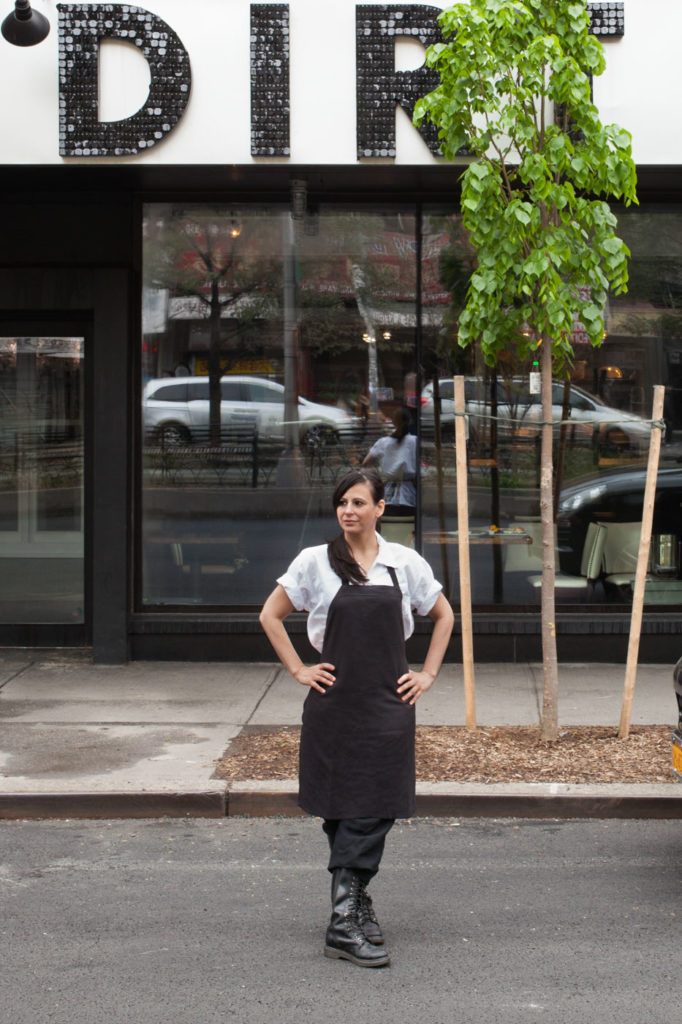
I remember being at NGI [Natural Gourmet Institute] and one of our assignments was to go home and watch an episode of Iron Chef. That night, it was you up against Morimoto. Alton Brown referred to Dirt Candy as a vegetarian restaurant and you firmly corrected him that it was a vegetable restaurant. Does that statement still hold true for you today?
I think it holds true even more today than it did then. We’ve always thought of ourselves as a place that celebrates vegetables. I think there are some amazing vegetarian restaurants out there, but they tend to be more about a lifestyle, and we’re really just about the food.
On your website is a quote: “Anyone can cook a hamburger, leave the vegetables to the professionals.” Do you feel as if there is a different skill set needed to pull off an all-vegetable menu rather than an all-inclusive one?
Yeah, I mean you really have to up your creative game to get people interested. You have to learn a whole new set of techniques. It doesn’t mean that other people can’t learn it, but it is starting from the basics again. You know when you’re growing up and someone is teaching you how to cook, or you’re learning through a cookbook, they’re really teaching you how to cook meat––they’re not teaching you how to cook vegetables.

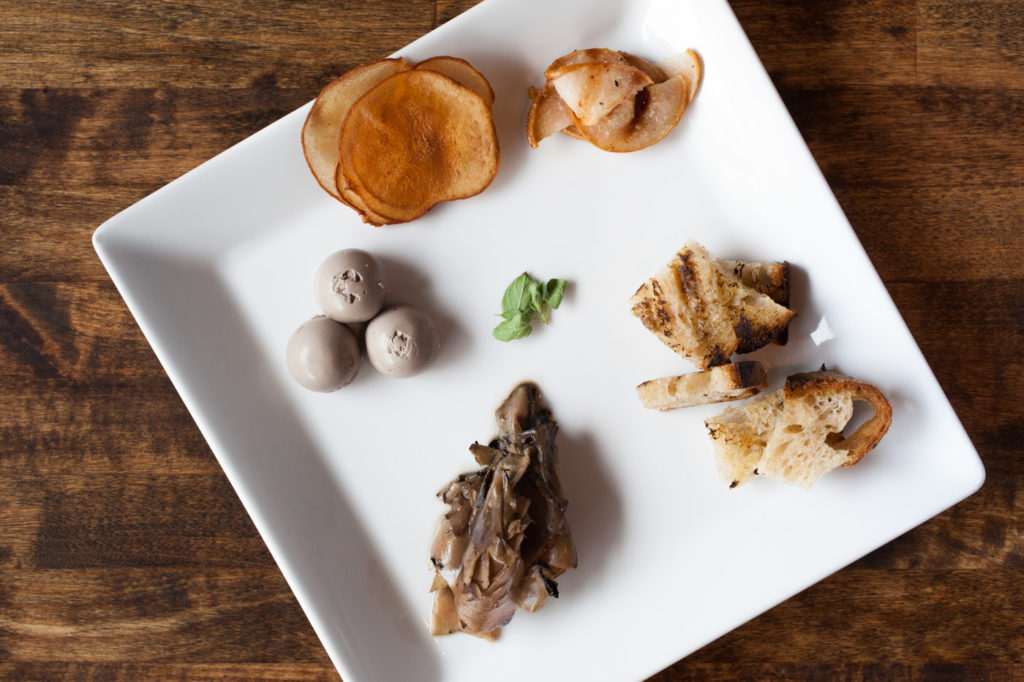
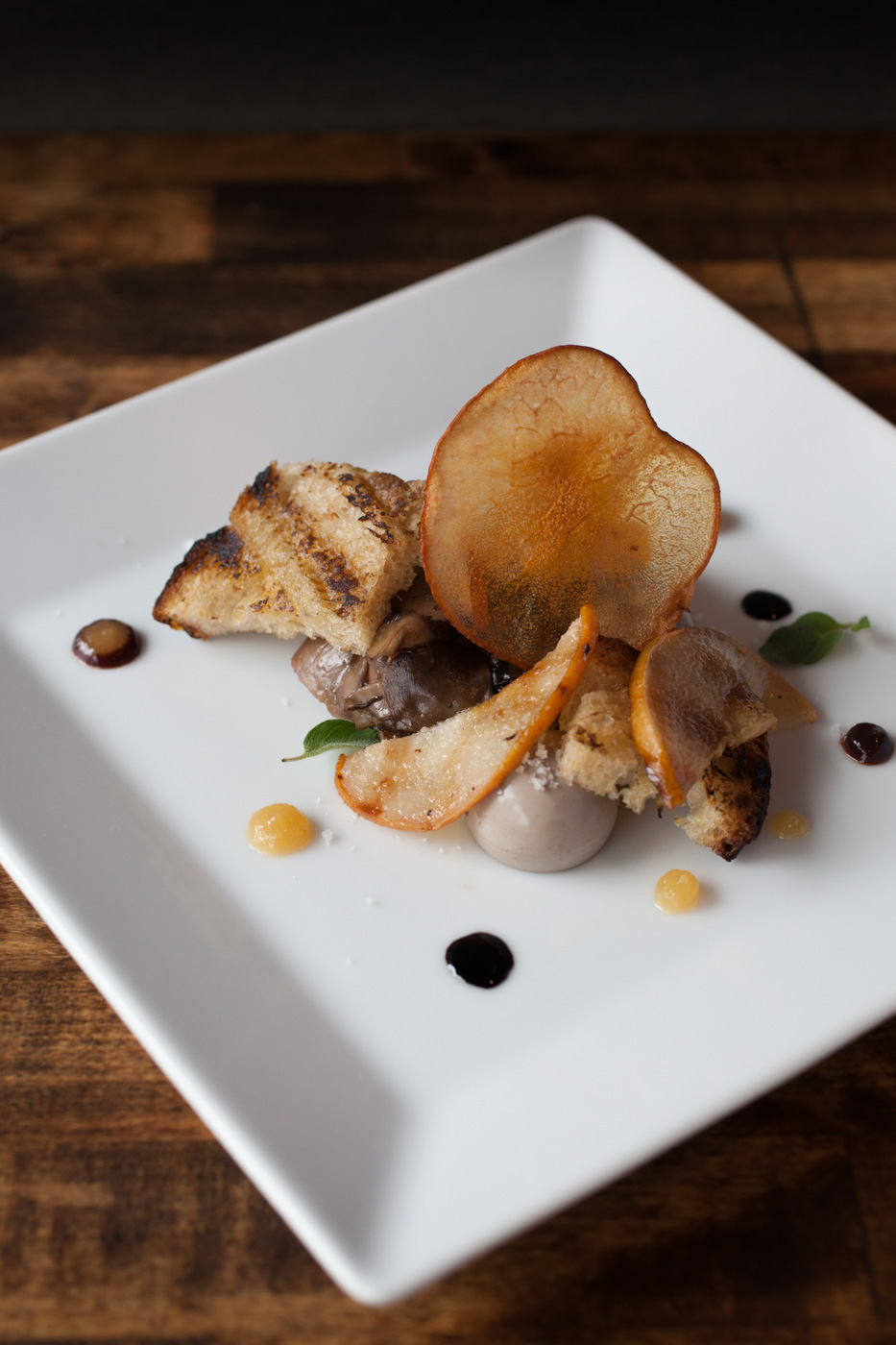
You became a vegetarian as a teenager, but before that were vegetables a big part of your upbringing? Did you always possess this love and passion for vegetables?
I wouldn’t say I was a carrot-chopping maniac as a five-year-old. It developed more as I learned how to cook and had a number of jobs, and started noticing what people cared about. About midway through my career, I sort of realized I was good at being creative. It was nice to have those boundaries because it forces you to be creative.
Did growing up in a Jewish home have an impact on your menu choices or cooking styles?
I have a big family and we spend a lot of time together around the Jewish holidays, so to me that’s always been a really important time in my life––sitting down and eating with all of my siblings, and my parents, and my cousins, and aunts and uncles. Those are certainly the moments I love food the most, because it’s about the people. Although my family’s’ background is Ashkenazi, the flavors that I love tend to lean towards are more Sephardic.
In 2008 when you opened Dirt Candy, you truly were like the misfit of the culinary world. You didn’t belong with the tempeh and seitan coveting vegetarians, you definitely didn’t belong with the chefs serving foie gras burgers topped with seared pork belly. Were you worried about the kind of reception you’d get from your fellow peers?
Yeah, I was terrified. I’m still terrified and feel like an outsider everyday. It’s why I opened a really small restaurant; it was built for failure, so even if nobody came it would be okay. Luckily, we were successful. But I think it took people a really long time to see that this was a type of food and a type of cuisine that could be successful. I think we’re still only on the cusp of it.
How do you feel about the shift in the dining scene that’s taken place over the last several years with many restaurants offering vegetable focused menus? Do you feel like you played a role in this transformation?
I do. I still think we’re doing something really different. There are so many upscale vegetarian restaurants, or restaurants that are vegetable-focused. But we really are the only one saying, “Look we are putting vegetables in the center of the plate.”
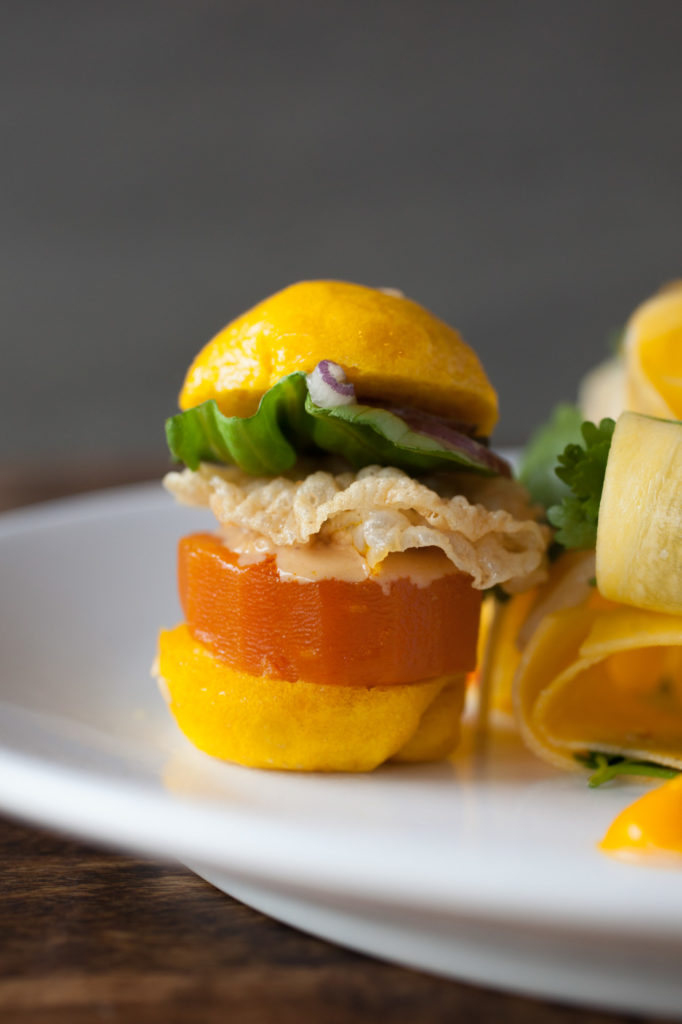
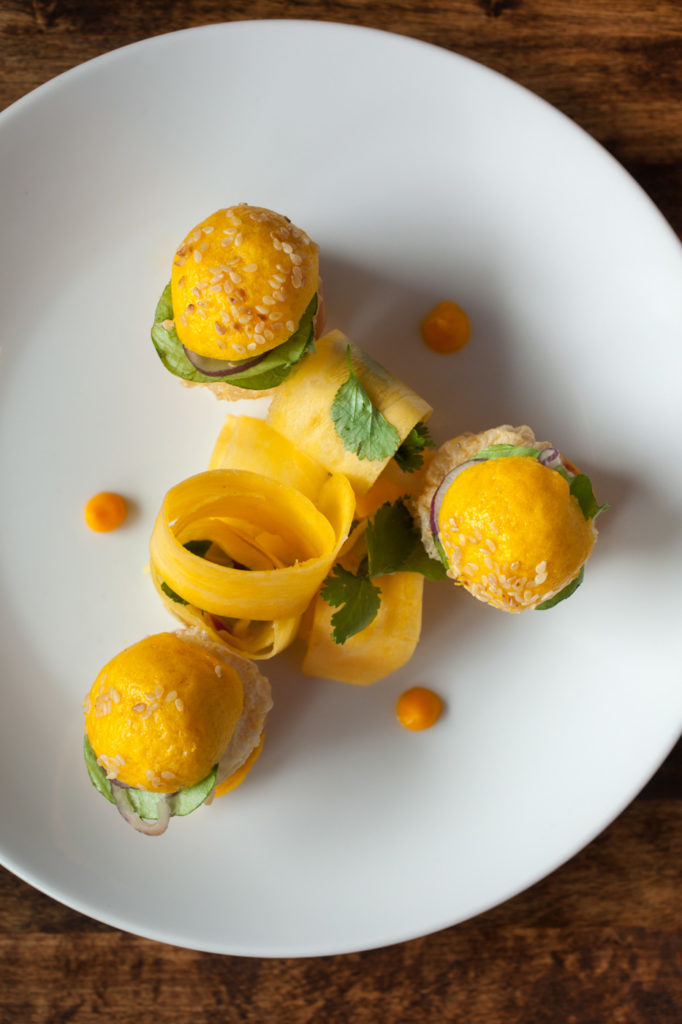
Last year, when you eliminated tipping at the restaurant, you became the center of a very controversial topic. How has that decision impacted Dirty Candy, your staff, and your customers?
We barely notice it because it seems really normal to us. At the beginning, we were terrified that people wouldn’t come to the restaurant, that I wouldn’t be able to find servers, and that it would just be a disaster, but we wanted to go for it anyways. The truth is, for the most part customers didn’t really care. We got some negative online comments and a couple of customers that didn’t understand what was going on, but my servers all wanted to work for me––they still want to work for me––and now it just seems quite normal. A lot of others chefs have started to do it in bigger restaurant groups, and it’s becoming more and more popular.
A shortage of line cooks has made news recently. Do you see the elimination of tipping as a solution to the living wage problem of cooks and restaurant industry employees?
I believe it’s a step in the right direction. I’m not sure if I have the right answers about anything, but this was the only thing I could figure out to do last year––and I think it was the right thing to do. I don’t believe in tipping as a system, but we still have an industry where cooks are leaving, they’re not getting paid enough, they’re going into huge debt if they’re coming out of cooking school. Even if they’re not, just living in New York is incredibly expensive, and we’re not a supportive industry. For the most part, restaurants don’t have healthcare, maternity leave––all of those big issues that make people want to stay at their job and grow with it. That’s what we’re losing our cooks to, and it’s something that still needs to be figured out.
You’ve written a lot for your column at Eater, “Dispatches From Dirt Candy,” lifting the veil on the world of chefs and restaurants. What is your purpose in doing so?
I think it’s what I would have wanted to read when I was starting out. We have a lot of younger cooks here and I probably feel way too responsible for them. I want them to know what the industry is like and what they’re walking into. And I want customers to know, too. There’s this smoke and mirrors game that we play that’s great––this is an event, it’s theater. But at the same time, when you go to the theater, you know that you’re watching a piece of theater. I don’t think customers always realize that what’s happening in a restaurant. At this point while we’re having a hard time sustaining the industry; it’s important that they know why we do what we do.
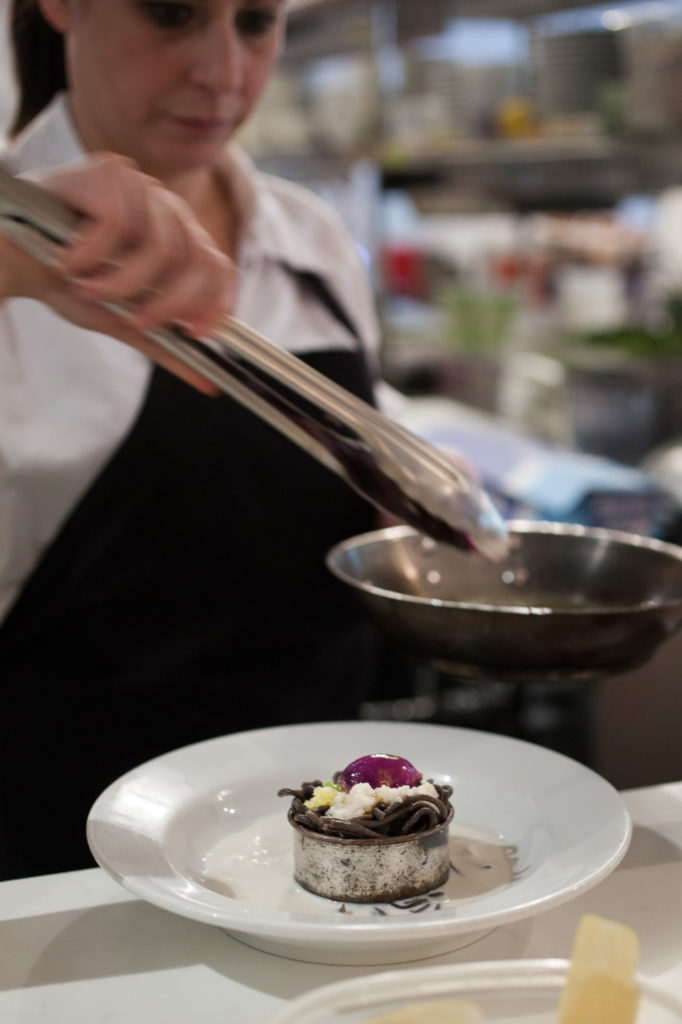
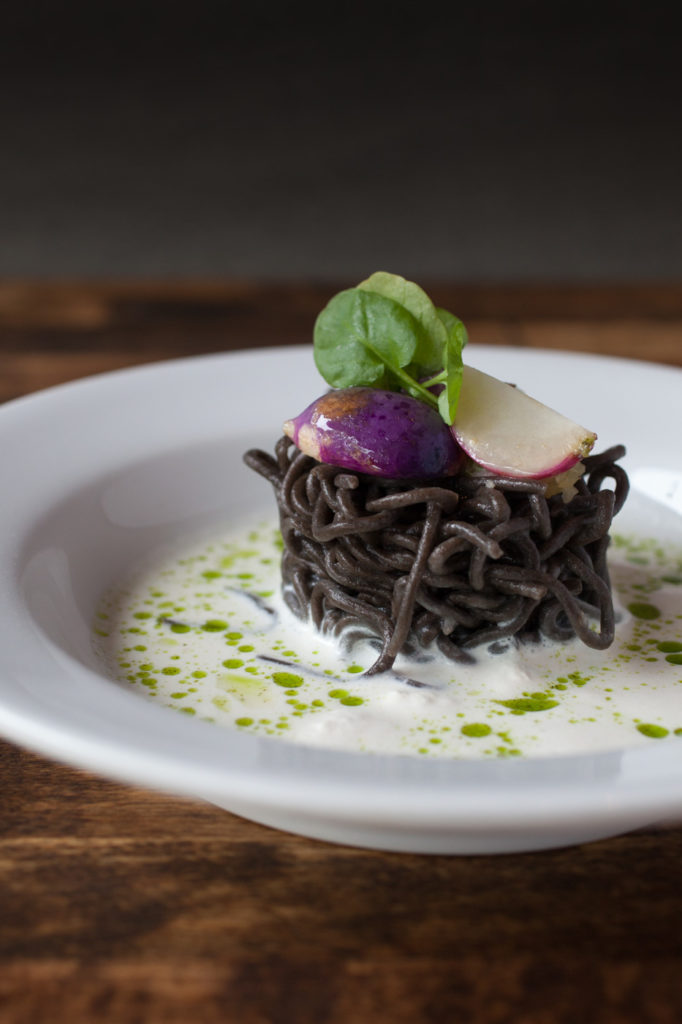
Some chefs with the level success Dirt Candy has enjoyed become symbolic figureheads of their restaurants, but you’re here everyday with your staff. Why is that?
There are two reasons. One is that I like to be very hands on. This is my only restaurant, so as much as possible I think it’s important to be here as support for the staff and support for the customers. Two, I am a paid employee of this restaurant, and I actually have a job that I do here. My job is making the menu, as well as expediting. If I’m not here, someone else needs to be able to do that job.
Do you think it was harder for you running Dirt Candy fitting into such a tight niche being an all-vegetable restaurant and a woman restaurateur and executive chef?
Oh, yeah! I always say I’m like the Ginger Rogers of the food world. I’m dancing backwards in heels––I’m doing vegetables and I’m a woman. Take away one of those, and I think I probably could have been more successful.
You’ve been vocal about the lack of recognition given to female chefs in the industry. What female chefs do you look towards for inspiration?
Any female chef who’s working in her kitchen right now, I really admire. Anyone who has managed to get out of her kitchen and be successful, I really admire. That being said, I just interviewed Joyce Goldstein and I was pretty blown away. I kept thinking, “You’re my hero.”
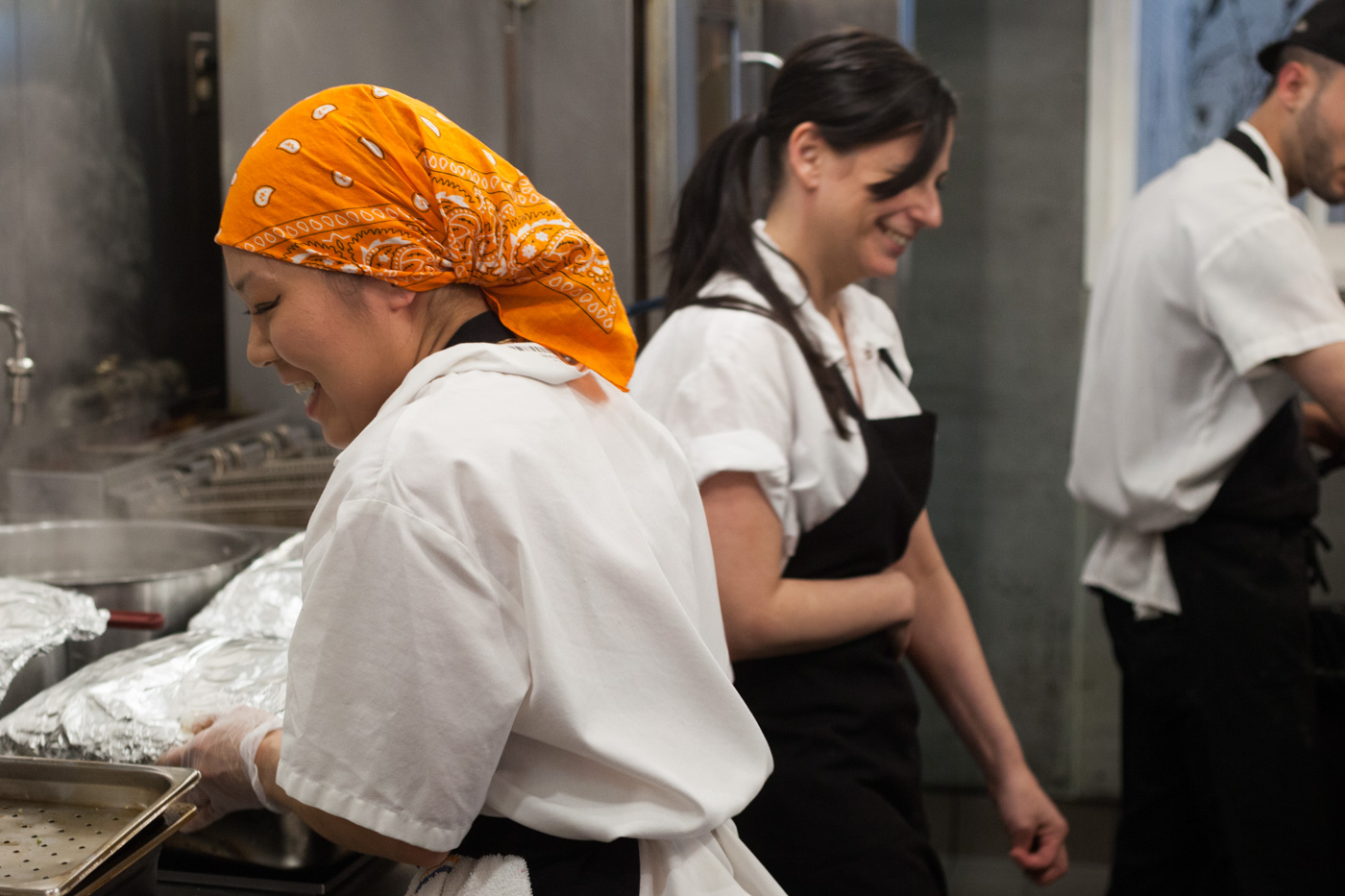
At Dirt Candy, you’ve taken vegetables that people have eaten their entire lives and created an entirely new context for them. What sources do you look to for inspiration?
Usually, I start with a vegetable that I feel bad about, that I haven’t used in a while, and then I go from there. Sometimes it’s like putting one plus one together and coming up with a completely random number like 15.
What can we expect to see from the Dirt Candy family in the future? Any plans to open another location in another city?
Please just shoot me if I decide to open another restaurant in New York. Opening a restaurant in New York is really, really hard, and I can’t imagine doing it again. My long-term goal is to make this restaurant the best possible version of itself, and that’s what we work towards everyday.
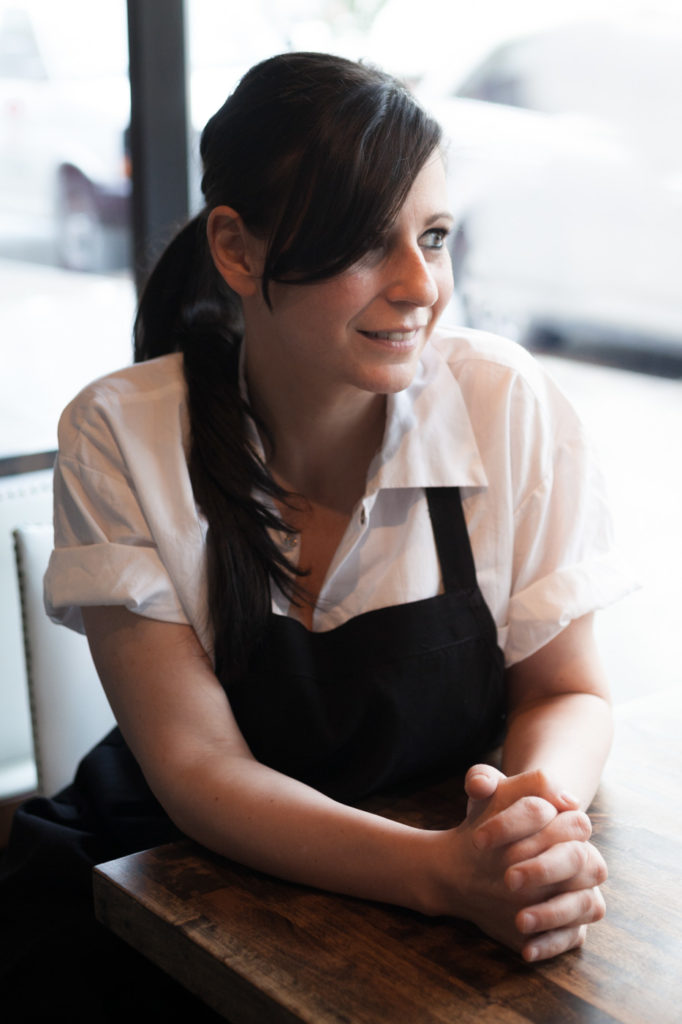





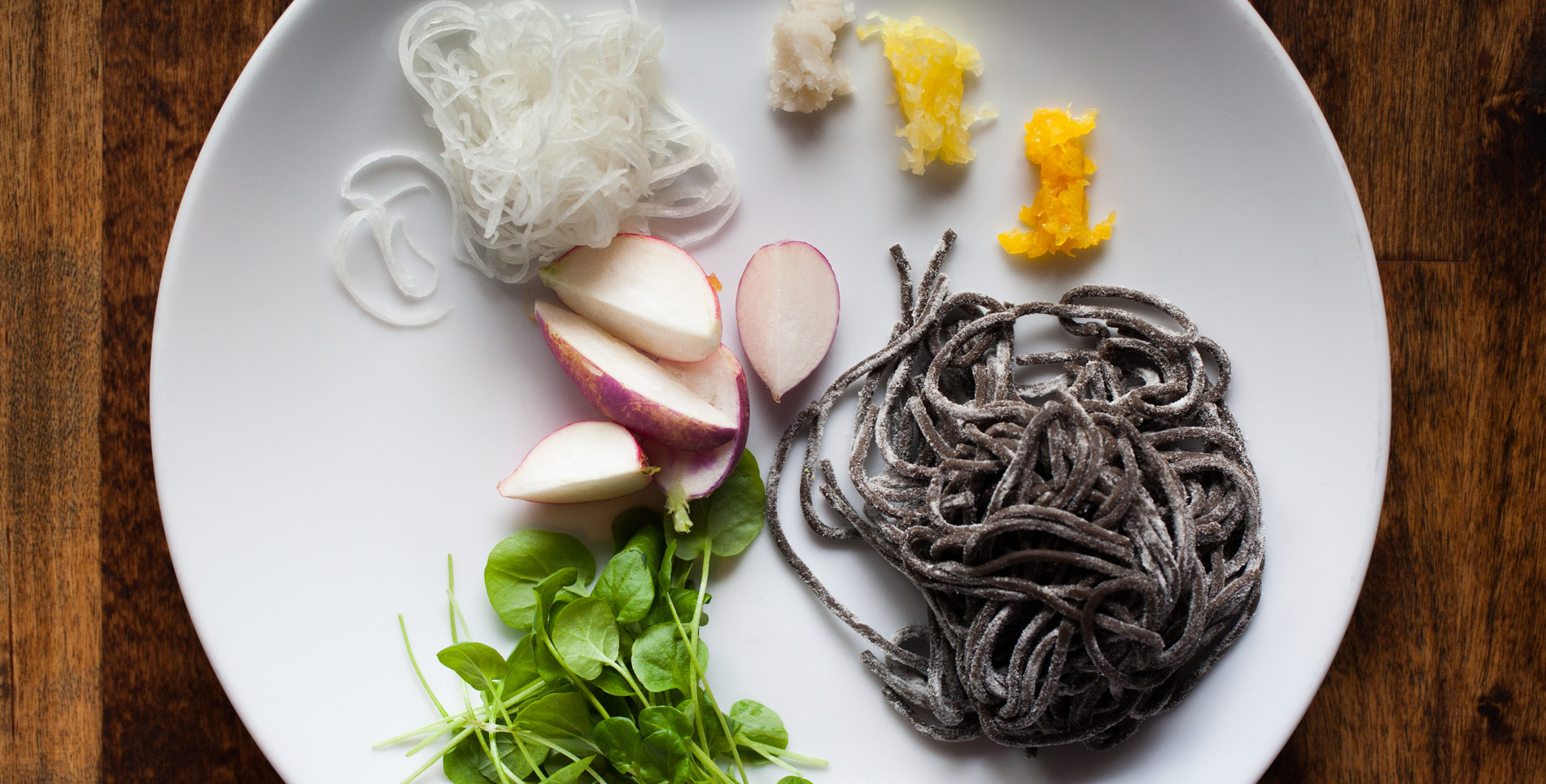

Our comments section is for members only.
Join today to gain exclusive access.